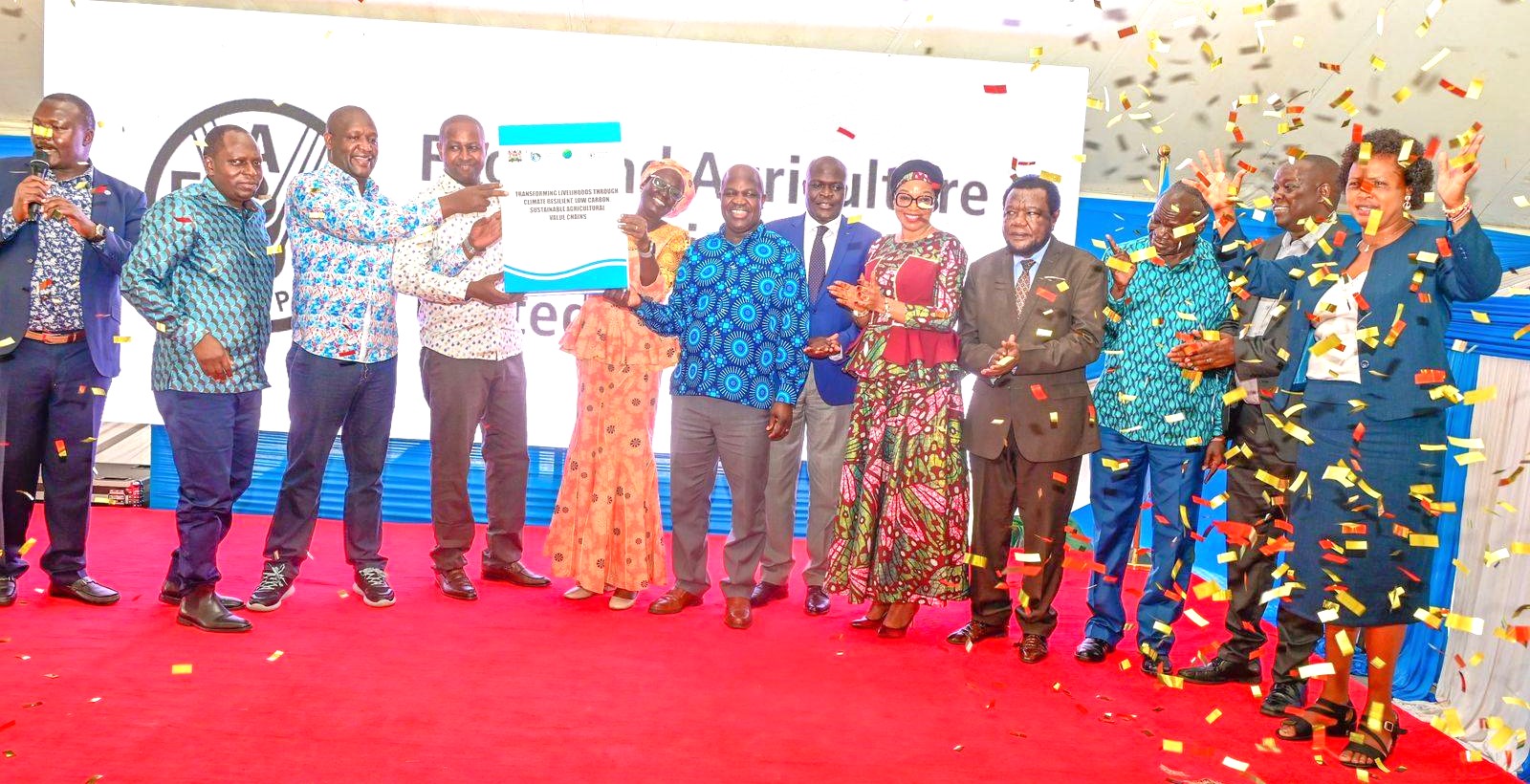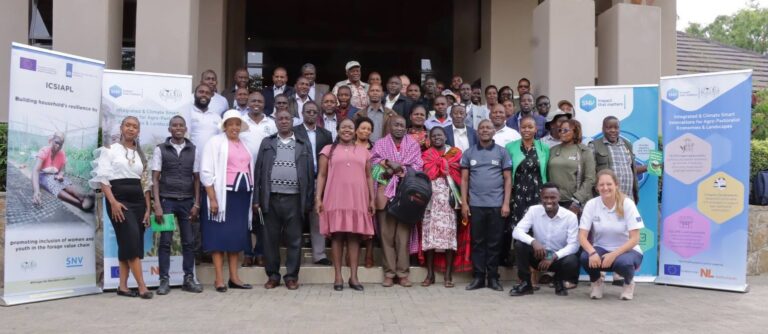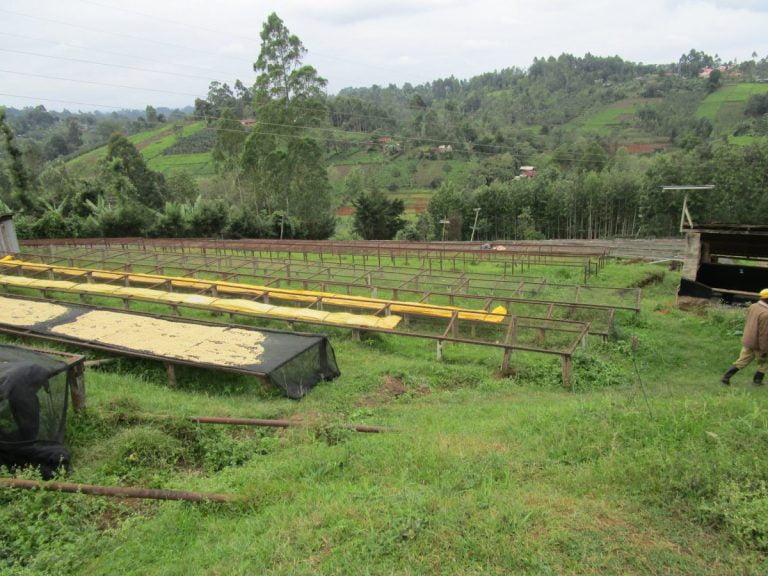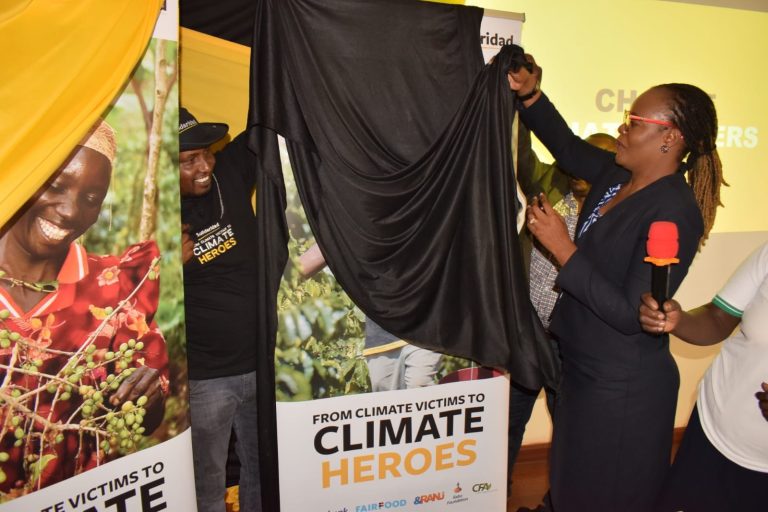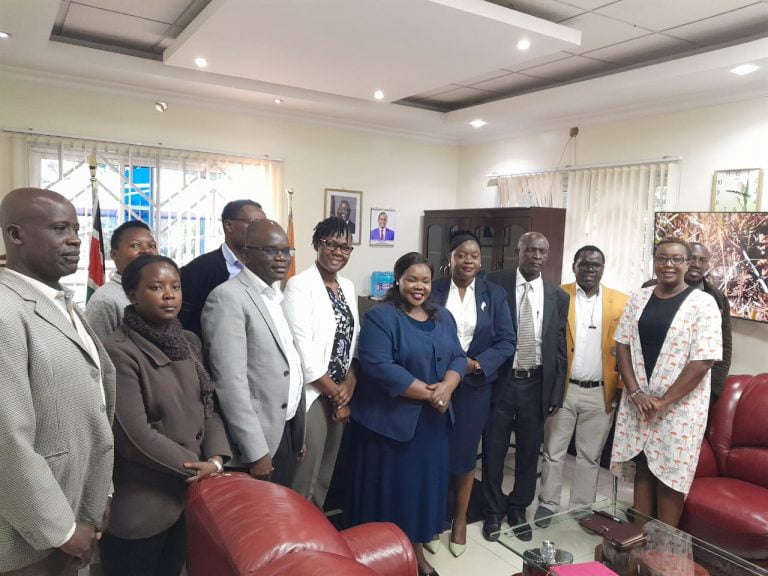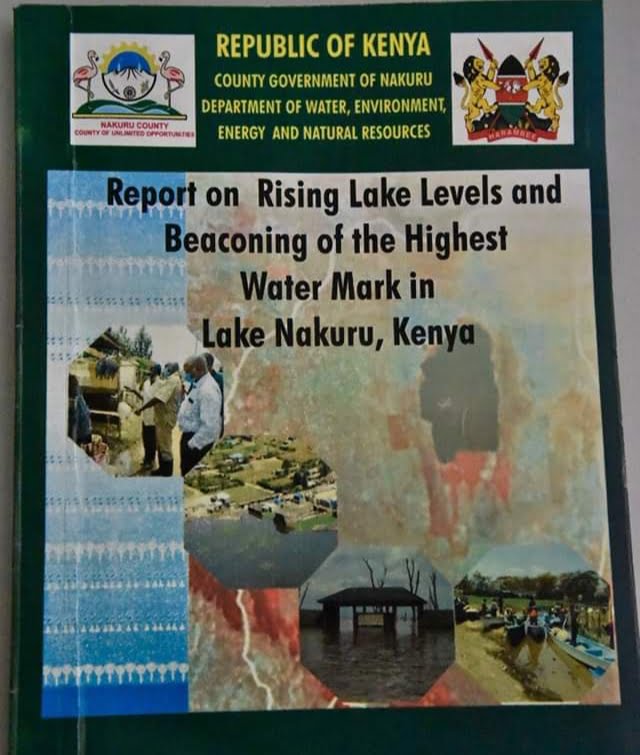The Kenyan government has initiated a Kshs 6.4 billion project to transform agriculture in the Lake Region Economic Bloc (LREB) in partnership with the Food and Agriculture Organization (FAO) and the Green Climate Fund (GCF).
The six-year initiative, named “Transforming Livelihoods through Climate-Resilient, Low-Carbon, Sustainable Agricultural Value Chains in the Lake Region Economic Bloc,” will be implemented across 14 counties. It focuses on six key value chains: dairy, poultry, coffee, tea, fruit trees, and African leafy vegetables.
The key focus areas will be supporting 140,000 farmers, including 80,000 cooperative members and 63,000 farmers’ groups, enhancing climate resilience and promoting low-carbon technologies, restoring degraded agricultural landscapes and strengthening access to climate-smart agricultural information and services.
Speaking at the launch in Kisumu County, Cooperatives Principal Secretary Patrick Kilemi stated, “This project is not just about mitigating climate change effects; it is about transforming agriculture into a profitable, sustainable venture.” He added: “Consequently, by increasing yields and lowering input costs, we are securing farmers’ livelihoods while reducing environmental impact.”
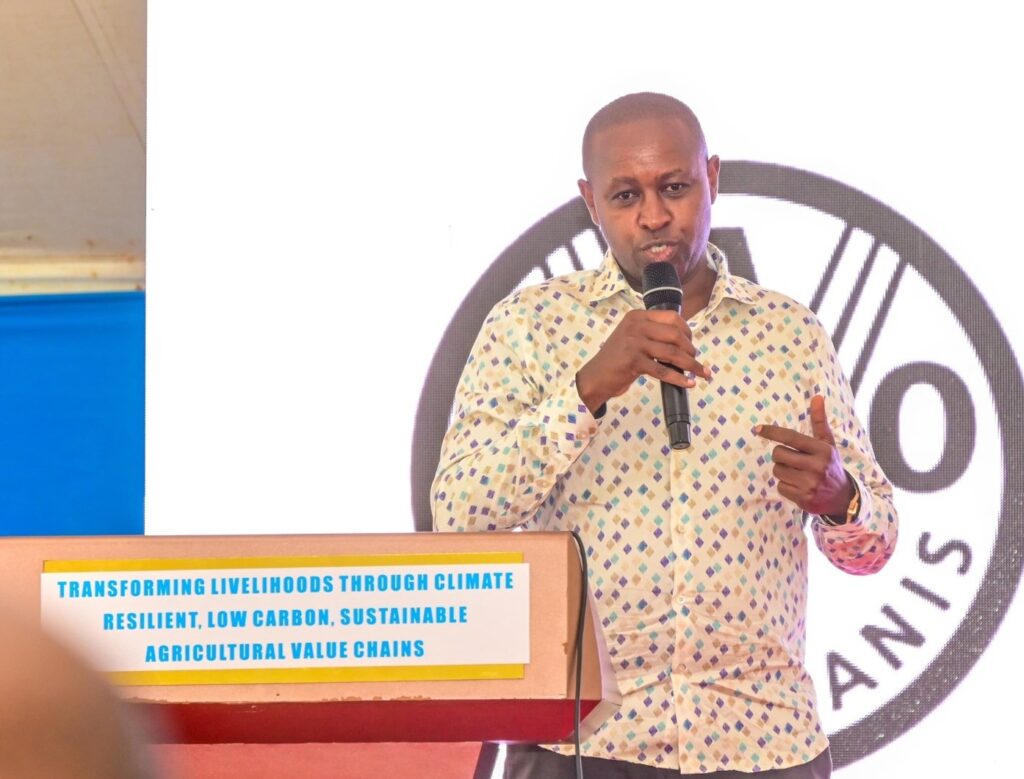
Kilemi emphasized that the State Department for Cooperatives is central to the project, aligning with the Bottom-Up Economic Transformation Agenda (BETA). He urged farmers in the 14 target counties ( Kisumu, Siaya, Homa Bay, Migori, Kisii, Nyamira, Kericho, Bomet, Nandi, Vihiga, Kakamega, Bungoma, Busia and Trans Nzoia ) to join cooperatives for maximum benefits saying that the cooperatives will ensure knowledge transfer and sustainability of the interventions beyond the project’s duration.
FAO Country Representative Dr. Nyabenyi Tipo highlighted the project’s broader impact. “Strengthened cooperatives and farmers’ organizations are crucial in addressing climate change in Kenya’s agricultural and environmental sectors, as they enable collective action, allowing farmers to pool resources, share knowledge, and advocate for climate policies effectively,” she said.
She added that the project will address financial gaps in climate adaptation, promote sustainable intensification (increasing yields with minimal environmental harm) and engage the youth in agriculture for intergenerational knowledge transfer.
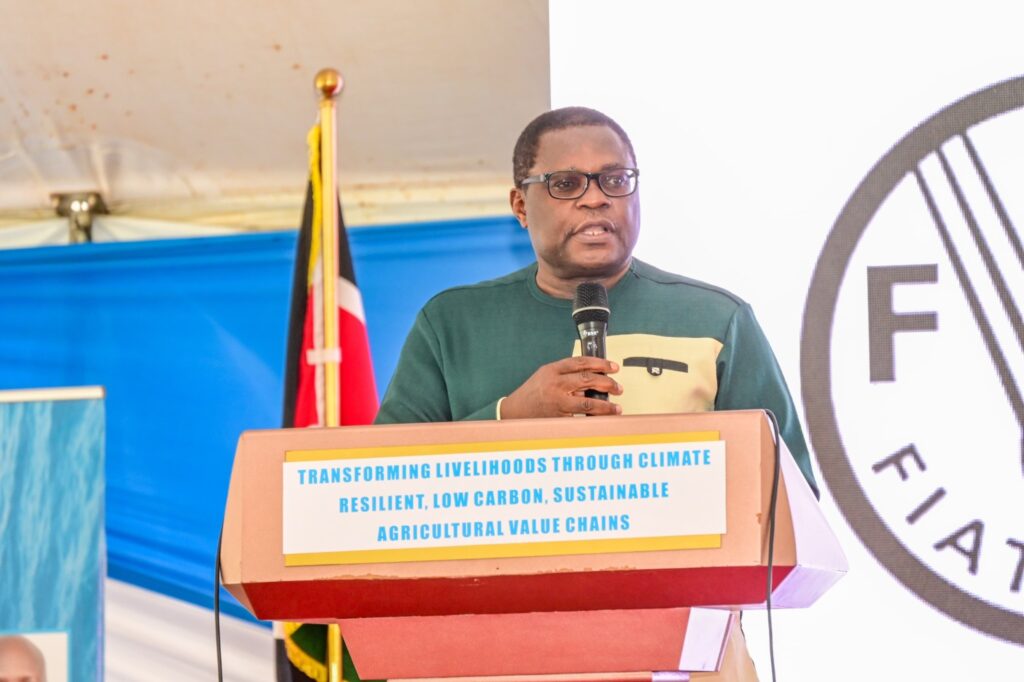
On his part, Bungoma Governor Kenneth Lusaka, who is also the LREB Vice Chairman, called the project a critical step for food security. “This is more than just farming; it’s about securing livelihoods. By leveraging Artificial Intelligence (AI), precision agriculture and climate risk analytics, we can optimize resources and enhance food security,” he opined. He reaffirmed LREB’s dedication to sustainable agriculture, positioning the region as a leader in climate-smart farming.
The expected outcomes from the project include improved food security and farmer incomes, climate-resilient agricultural practices, stronger cooperatives for long-term sustainability and youth empowerment in agriculture.


